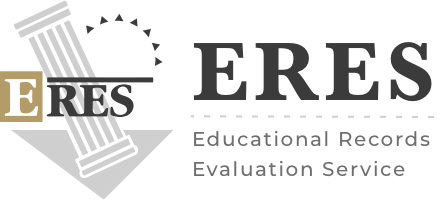Picture that there are two equally qualified foreign-trained lawyers who arrive in the United States and bring similar credentials. One hustles in New York, immediately building a successful practice; however, the other experiences setbacks in California. What causes the contrast? It is essential to understand state-specific licensing requirements before making that significant first step.
Can you practice law in the USA with a foreign law degree? The answer is based entirely on where you choose. Many foreign lawyers make the expensive mistake of assuming that all U.S. states have universal requirements, which can lead to wasted time, unnecessary expenses, and missed opportunities.
Landing as a successful foreign-trained lawyer in the U.S. is rooted from a strategic state selection based on your credentials and career goals.
Why State Differences Matter
The United States is different from other countries with centralized bar systems as it operates under a federalist structure. This means that each state keeps its sovereign rights to regulate legal practice. The Tenth Amendment maintains powers not delegated to the federal government to the states, including determining who can practice law.
So, there is no unified national bar exam (yet many states use the Uniform Bar Exam), and the requirements vary. For instance, Louisiana has its civil law tradition, whereas other states follow English common law principles. This decentralized system creates both opportunities and hindrances for international lawyers.
Without proper understanding, foreign-trained lawyers face:
- Time wasted on ineligible applications
- Financial losses from unnecessary LLM programs
- Career delays and missed opportunities
- Geographic limitations discovered too late
State-by-State Breakdown
Most Accessible States
New York: The Gold Standard
New York is the top choice for international attorneys as it offers direct bar exam eligibility for foreign lawyers with qualifying degrees. The city is home to prestigious global law firms, with unmatched opportunities in corporate law, international practice, and specialized areas. The state also acknowledges educational equivalency rather than requiring additional U.S. degrees and values international legal training.
California: Opportunities with Conditions
California is considered the most “globalized” state in terms of bar admission eligibility. Foreign law graduates with LL.M. degrees from ABA-approved schools have clear pathways to bar examination eligibility. However, California maintains one of the strictest bar exams nationally due to historically low passing rates. Nevertheless, the recent reduction in cut scores from 1440 to previously 1390 out of 2000 points made it slightly more passable, yet it remains challenging.
Washington D.C.: The International Hub
Washington D.C. offers the highest concentration of legal opportunities in America. Statistics revealed that it has 48.7 lawyers per thousand residents, which is five times higher than New York. The state’s liberal admission rules and federal practice opportunities make it ideal for international law practitioners. The capital focuses on policy, regulation, and international affairs, which made it perfectly suitable for lawyers with global viewpoints.
States Requiring Additional Education
Several states order U.S. legal education before bar admission:
Texas: Requires Master of Laws completion but offers opportunities in energy law and Latin American trade
Florida: Mandates Master of Laws. This requirement serves as a ticket to Latin American markets with no state income tax
Washington D.C.: Requires Master of Laws from ABA-accredited schools. This degree also justifies extensive international opportunities
The Master of Laws programs require one year of full-time study costing $50,000-$80,000 and above, but provide valuable networking and more profound U.S. legal familiarity.
Challenging States
Some states present significant barriers through restrictive policies or limited pathways. Alternative approaches for these jurisdictions include:
- Federal practice (immigration law, federal litigation)
- In-house counsel positions
- Building experience in accessible states first
Critical Selection Factors
Market Demand
Recent data shows North Carolina leads with 252.87 monthly legal searches per 100,000 residents, followed by Colorado (248) and Nevada (244), indicating strong legal service demand.
Practice Area Alignment
- Corporate law: New York, Delaware, California dominate
- Immigration law: Thrives in California, New York, Florida, Texas
- International trade: States with major ports or borders offer unique opportunities
Practical Considerations
- Bar exam difficulty varies significantly (California and Arkansas are most challenging)
- Language support and accommodations for non-native English speakers
- Reciprocity agreements for future mobility
- Cost of living versus earning potential
The Credential Evaluation Process
Why Start Here
Before making informed state decisions, you need a professional analysis of how U.S. institutions view your foreign legal education. The role of credential evaluation is to determine eligibility and identify additional requirements needed.
How ERES Streamlines Your Path
Comprehensive Services:
- Detailed analysis of foreign law degrees
- State-specific requirement matching
- Clear reporting trusted by licensing boards
- GPA conversion to U.S. standards
Expert Guidance:
- Understanding of international legal education systems
- Direct relationships with state bar offices
- Personalized roadmaps based on credentials and goals
- Fast, accurate processing maintaining timelines
The ERES Advantage:
Common evaluation services lack legal education expertise. Nevertheless, ERES specializes in legal credential evaluation and helps you to understand nuances that affect bar admission success. Many lawyers who worked with ERES save significant time and money by avoiding unnecessary requirements and focusing on promising pathways.
Strategic Planning
Create Your Action Plan
1. Assess Current Credentials
- Professional education evaluation through ERES
- Document legal experience thoroughly
- Evaluate English language proficiency needs
2. Define Career Goals
- Identify preferred practice areas
- Consider geographic and lifestyle factors
- Set realistic timeline expectations
3. Match States to Your Profile
- Choose primary target state
- Identify 2-3 backup options
- Plan long-term mobility strategies
Timeline Considerations
Plan 6-12 months from credential evaluation to bar admission:
- Credential evaluation: 2-4 weeks
- Bar application processing: 2-6 months
- Character and fitness review: Additional months possible
Common Pitfalls to Avoid
Critical Mistakes:
- Assuming common law advantages apply universally
- Overlooking character and fitness complexities
- Underestimating English proficiency requirements
- Missing inflexible application deadlines
Due Diligence Checklist:
- Verify current requirements (rules change regularly)
- Contact state bars directly for official information
- Network with successful foreign-trained lawyers
- Consider professional bar admission consultation
How Strategic State Selection Creates Success
The average expense of a credential evaluation in the United States for international students is about USD 175. Nonetheless, the price can range between $100 and $300 or even higher, depending on the factors. Factors include what services are needed.
Selecting which state is your most important first decision. It affects timeline, costs, and career opportunities. Your international legal training is an asset for law firms and clients who value global perspectives, language skills, and experience beyond borders.
Next Steps:
- Start with ERES credential evaluation for professional analysis and state-specific guidance
- Research top three target states using this guide
- Create personalized timelines with realistic milestones
- Connect with bar admission resources and professional networks
Do not slow down on your American legal career. You can successfully navigate state-by-state licensing requirements by choosing the right expert guidance and proper planning. By contacting ERES for credential evaluation, you can take the first strategic step toward practicing law in the United States.
References
Buckner, S., JD. (2024, March 29). What are the professional requirements for becoming a lawyer? FindLaw. https://www.findlaw.com/hirealawyer/choosing-the-right-lawyer/what-are-the-professional-requirements-for-becoming-a-lawyer.html
California’s Labor Market amid Economic Uncertainty. (2025, July 23). Public Policy Institute of California. https://www.ppic.org/blog/californias-labor-market-amid-economic-uncertainty/
Claggett, Sykes & Garza. (2024, February 14). States where people most need lawyers | Claggett, Sykes & Garza. Claggett, Sykes & Garza Trial Lawyers. https://csgtrials.com/research/states-where-people-most-need-lawyers/
Drake, & Dean, F. (1998, July 20). States’ rights | Importance, Examples, & Facts. Encyclopedia Britannica. https://www.britannica.com/topic/Tenth-Amendment
Educational Records Evaluation Service (ERES). (2025, July 22). How can Credential Evaluation Help Recruitment Agents Find a Job for You? ERES. https://eres.com/blog/can-credential-evaluation-help-recruitment-agents-find-a-job-for-you
Educational Records Evaluation Service (ERES). (2025, July 22). How can Credential Evaluation Help Recruitment Agents Find a Job for You? ERES. https://eres.com/blog/can-credential-evaluation-help-recruitment-agents-find-a-job-for-you
Educational Records Evaluation Service (ERES). (2025, June 4). Guide: All about ERES Academic Credential Evaluation Report. ERES. https://eres.com/blog/what-is-an-academic-credential-evaluation-report
Foreign lawyers seeking to practice in U.S. face roadblocks. (2022, February 9). LawCrossing.com. https://www.lawcrossing.com/article/1362/Foreign-Lawyers-Seeking-to-Practice-in-U-S-Face-Roadblocks/
Hamidov, A. (2025, May 28). The Best States for Lawyers: Where to grow your legal career. CosmoLex Cloud, LLC. https://www.cosmolex.com/blog/best-states-for-lawyers/
Hardest bar exams by state 2025. (n.d.). World Population Review. https://worldpopulationreview.com/state-rankings/hardest-bar-exams-by-state
OUPblog. (2015, November 2). What are the biggest challenges facing international lawyers today? OUPblog. https://blog.oup.com/2015/11/what-are-the-biggest-challenges-facing-international-lawyers-today/
Redmond, C. (2025, June 11). Top Law Firms in New York City | Excellence in every practice area. Redmond Law Firm. https://redmondfirm.com/top-law-firms-in-new-york-city-where-legal-excellence-thrives/
Spotlight on DC. (n.d.). Chambers Associate. https://www.chambers-associate.com/career-moves/career-moves-changing-locations/spotlight-on-dc
UWorld Legal. (2025, January 29). U.S. Bar Exam Guide 2025 for Foreign Students and Lawyers. https://legal.uworld.com/bar-exam/us-foreign-eligibility/
UWorld Legal. (2025, January 29). U.S. Bar Exam Guide 2025 for Foreign Students and Lawyers. https://legal.uworld.com/bar-exam/us-foreign-eligibility/




